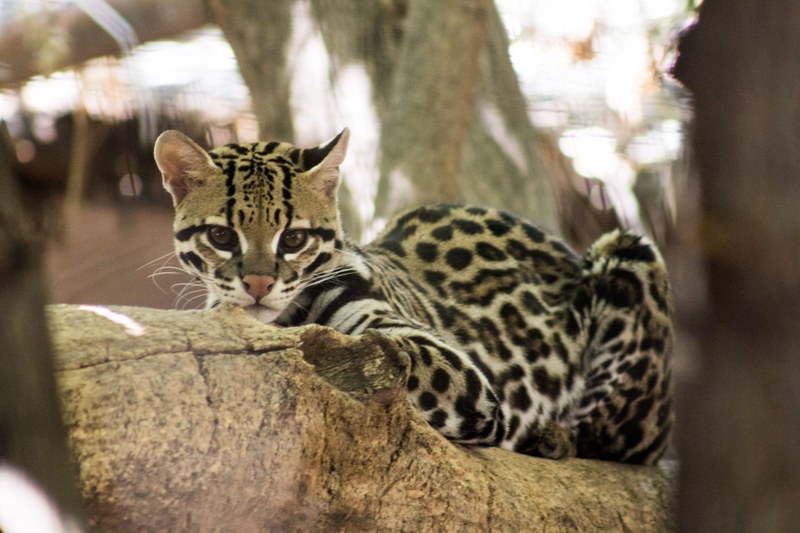
ABQ BioPark Ocelot Lucy Receives Sperm From Wild Male
The artificial insemination could help bolster conservation efforts for wild ocelots and increase genetic diversity in zoo-based populations.
Sept. 28, 2021 - The ABQ BioPark is part of an exciting initiative that could help both wild and zoo-based ocelots by bringing some new DNA into the captive genepool for this endangered species.
This July a team of veterinarians from the Cincinnati Zoo & Botanical Garden visited the ABQ BioPark to perform artificial insemination on the BioPark’s female ocelot, Lucy. This procedure, performed in collaboration with the BioPark’s veterinary and animal care staff, introduced semen from a deceased wild Texas ocelot and, if successful, will be the first time that kittens have been born using frozen semen from a wild ocelot.
Earlier this year, a wild male ocelot died after being struck by a car in Texas. Quick action from the Laguna Atascosa National Wildlife Refuge in South Texas, part of the United States Fish and Wildlife Service (USFWS), and the Gladys Porter Zoo, made the preservation of his semen possible after his death. Scientists at the Cincinnati Zoo & Botanical Garden’s Center for Conservation and Research of Endangered Wildlife then collected viable genetic material.
“We knew that any chance of success depended on collecting the cat and getting the sample to the Cincinnati Zoo as absolutely fast as possible,” said USFWS Wildlife Biologist Dr. Hilary Swarts in a joint press release from the USFWS and Cincinnati Zoo.
With only 60-80 ocelots living in their native Texas habitat, this procedure could be integral to the long-term health of the species. If the AI is successful, the offspring will help to broaden the genetic diversity of ocelots managed in zoos by the Association of Zoos and Aquariums’ Ocelot Species Survival Plan. It would also demonstrate, for the first time, the feasibility of producing kittens using frozen semen from the imperiled Texas ocelot population.
“We are incredibly excited to be part of this project to help broaden the genetic diversity of this endangered cat,” said ABQ BioPark Director Stephanie Stowell. “Conservation is a huge part of what we do here at the ABQ BioPark and we are delighted to be part of such important work for one of the species in our care.”
Further refinement of scientists’ capacity to create genetic exchange between wild and zoo-based ocelot populations or among wild ocelots living in fragmented habitats will help to ensure their continued survival into the future.
